CEO-splaining the Rogan deal to Spotify employees
Is Spotify's CEO expressing the values of the company as he addresses employee concerns over Rogan controversy?
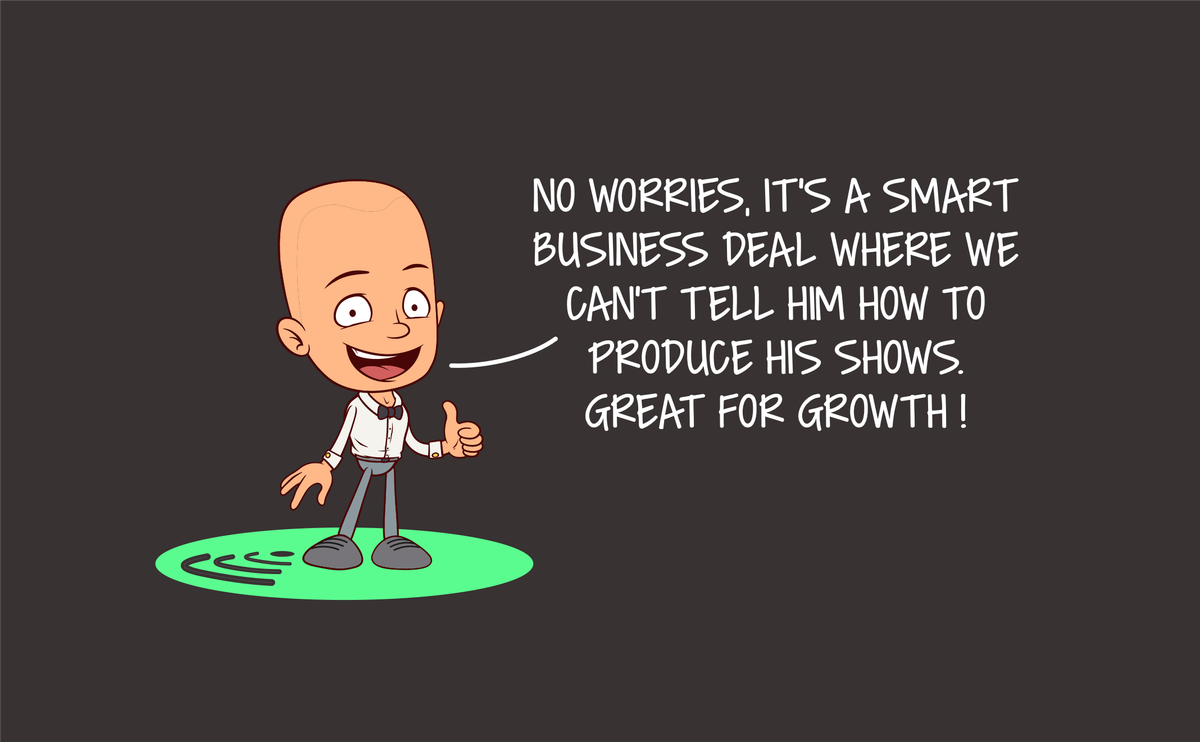
As I'm reading the full transcript of Daniel Ek's internal speech to employees, a speech he urged them not to leak to the press, I am unsettled by its lack of recognition for the very real employee concerns. The speech fails to acknowledge Spotify's role in any harm, which – to be fair – is no surprise. What I find most disconcerting is seeing a CEO addressing employees as if they do not understand the bigger picture of business, while himself seemingly missing the bigger picture of their distress. Let's break it down.
Heads up: there is now a part 2 to this analysis.
It would appear to me that Daniel Ek is taking this whole ordeal somewhat personally, and more importantly: seeing it as a questioning of his ability to make sound business decisions. Hence his focus on repeatedly emphasising the growth advantages of the Rogan deal.
Quick background if you're not familiar: Before last year (2021), the Joe Rogan Experience (JRE) podcast was not available on Spotify, with Rogan saying Spotify didn't pay enough. Spotify then struck a deal with Rogan, making all his content exclusive to Spotify, a deal that came into effect on September 1, 2021 - with exclusivity finalised in December when the show content disappeared from other channels. The multi-year licensing deal is said to be worth over $100 million. The timeframe for the collaboration is not known.
The deal was struck about a year after Spotify started investing heavily in extending its music-focused platform to also include podcasts. The content on JRE has repeatedly been criticised for pseudoscientific claims, misogyny, racism, misleading health advice and further prejudice left unchallenged. A recent episode covering Covid-19 led to criticism of Spotify from misinformation groups, and artists announced they would take their content off Spotify as long as Spotify continued to host and support the JRE podcast. To address employee concerns, CEO Daniel Ek held a town-hall meeting on February 2nd.
Ek: "It is really important to me that you understand why we did this deal and the impact it’s had on our growth strategy and the way we think about our role as a platform."
Spotify has put effort into hiring some of the world's top talent. To assume that the same people do not understand why Spotify has made the deal with Joe Rogan is to disparage their capacity for understanding how their own company makes money.
That's not what this is about. This is an issue of ethics, ultimately an issue of harmful impact to wellbeing both internally and externally, as well as a question of accountability. Boiling it down to a business lesson is not helpful. Quite the opposite. It is rather insulting.
Ek: "We don’t fit neatly into just one category. We’re defining an entirely new space of tech and media. We’re a very different kind of company, and the rules of the road are being written as we innovate."
The classic defense of "the rules don't apply to us because we're doing something different" is a sleight of hand. The assumed implication is that Spotify is so far ahead of the game that no one could possibly have thought to imagine the ethical dilemmas of financing and promoting harmful content on a global scale.
This comes ahead of explaining how this is a business decision based on gaining a competitive advantage with exclusive content. Not rocket science. Not something that has never been done before. The main difference is the magnitude of the potential harm given the size and reach of the show.
Ek's company is providing space for, and promoting, Rogan guests that have been banned from other social media platforms for their harmful behavior. That may be a new "rule of the road". But what part of this is innovative?
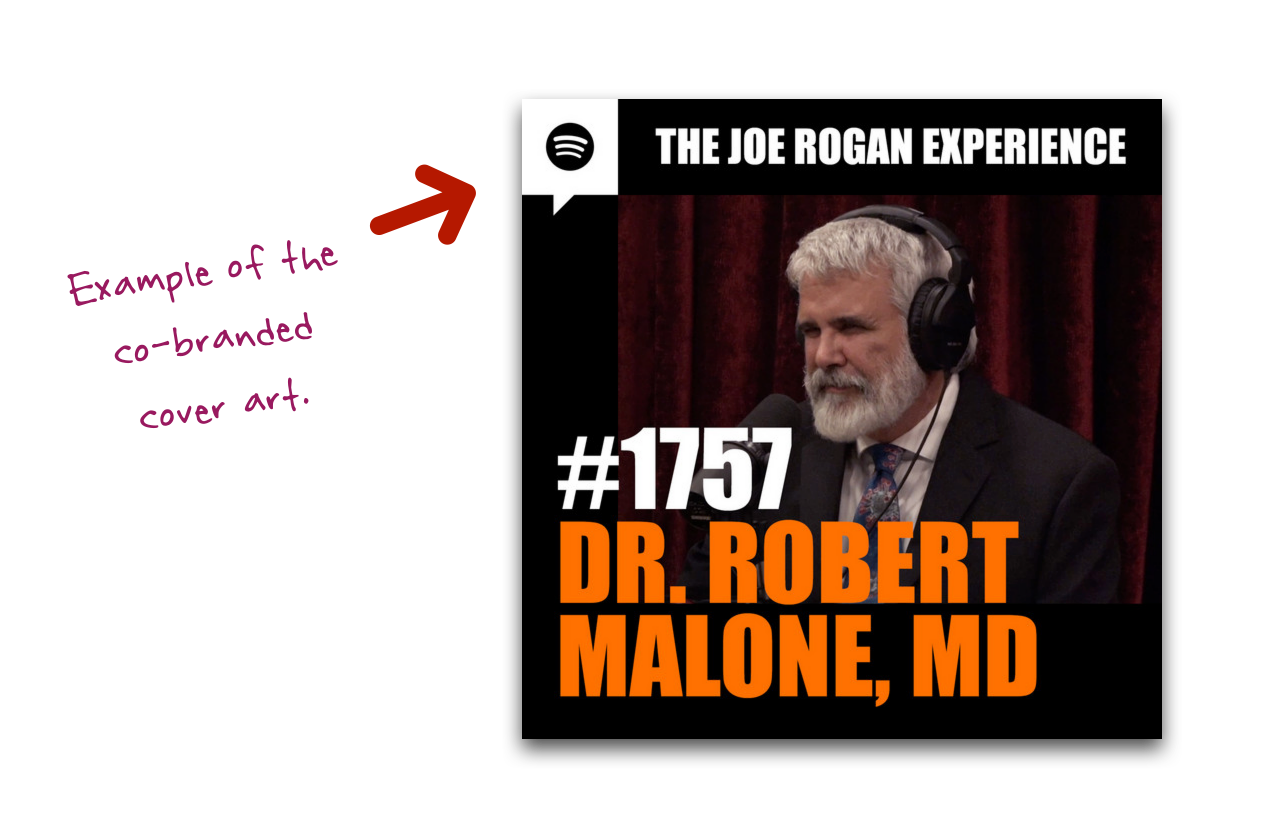
Ek: "So I want to stop for a moment here and acknowledge that this is incredibly complicated, and that the push and pull of this process makes a lot of people uncomfortable."
Is it complicated for Daniel Ek or for Spotify's employees? Unclear. Again, none of this is rocket science and the type of controversy that is unraveling is one that many have been exposed to before. Publications and media of all forms throughout history have entertained controversial content that do not reflect the values of the publication.
In fairness, there is something truly incredibly complicated: insisting that you are only a platform when you very clearly also are a publisher. But that is mostly complicated because it's not true and involves bending and twisting language into incoherent shapes.
It is important to note that we do not have creative control over Joe Rogan’s content. We don’t approve his guest in advance, and just like any other creator, we get his content when he publishes, and then we review it, and if it violates our policies, we take the appropriate enforcement actions.
I'm not sure if Ek truly believes that all media publishers have creative control over all the content they purchase and publish/broadcast? Many do exactly what he describes Spotify does, purchase content that they review after it is produced. Daniel Ek shared his perspective on why they are not a publisher. I'll share mine on why they are:
When people use your platform to publish content for free or for a fee , you are a platform. When you charge other people money that you share with those publishers/creators, you are still a platform. When you pay someone money to publish exclusively on your platform, and enforce terms for that publishing, you are also a publisher.
And you can not insist you are not a publisher just because you made a deal saying you wouldn't get to meddle in the content production. That's just a bad business deal. It has nothing to do with your responsibility for the content that you just paid to promote, and agreed to publish. Does anyone believe that Spotify doesn't have a say in the number of episodes Rogan has to produce for their contract to continue be valid? That's what publishers ask of their creators.
If you could deny publisher status just by writing a clause of plausible denial in a contract with the people you are paying to produce exclusive content, that would make things "incredibly complicated".
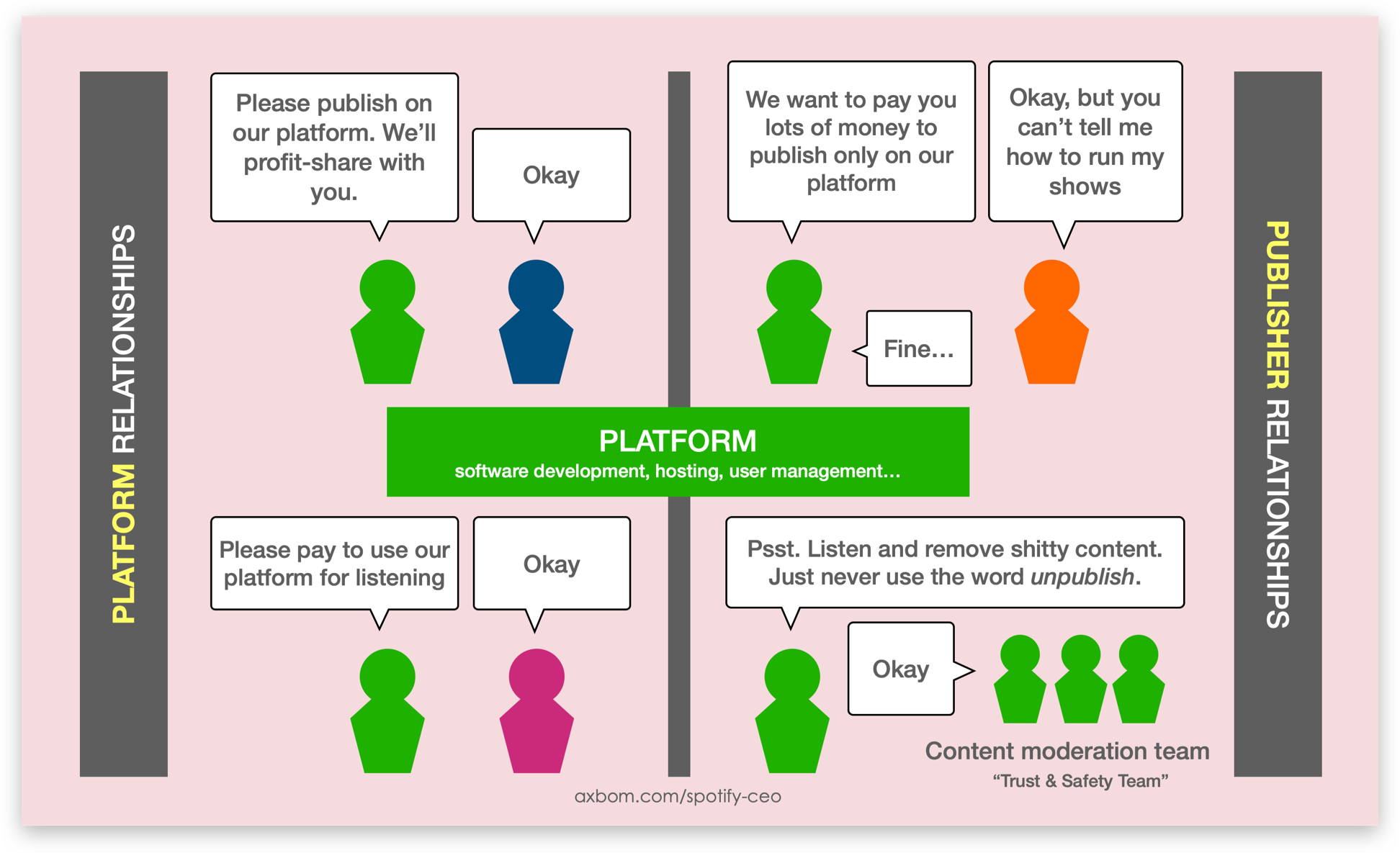
Ek: "Joe is held to the same standards, rules, and policies that every creator on our platform is held to, no matter how big or how small, no matter how much we pay for that content. And creators like Joe, they know how to walk really close to the lines, and sometimes they cross those lines, and when it’s in violation of our policies, we act."
Three logical fallacies are going on here (update: sorry four logical fallacies):
- That size and reach does not matter for the amount of harm a show contributes to.
- That a show is doing okay if it is constantly walking really close to a Spotify defined line as long as it does not cross it.
- That any such line can be clearly defined.
- That Spotify's signed contract, exclusive deal, investment in and promotion of JRE wouldn't mean they have publisher responsibility in ways they do not have with podcasts that are simply publishing on their platform without any reimbursement or special treatment.
Ek: "We’re not in the business of dictating the discourse that these creators want to have on their shows."
This time I can only refer you to the statement Daniel Ek himself just made:
when it’s in violation of our policies, we act
Time and time again there is this conflicting message. We do not have a say in the content that our creators put on our platform. But when they cross the line we take it down.
Which one is it?
Ek: "And if we only wanted to make content that we all like and agree with, we will need to eliminate religion, and politics, and comedy, and health, and environment, and education, the list goes on and on and on because these are really complicated issues."
Oh this one's a doozy. A classic hollow man argument. And there's that word again: complicated.
Daniel Ek here fabricates a viewpoint that actually nobody has. It's easy to win this debate point because the opponent doesn't exist. Absolutely no one is suggesting that the best way forward is removing anything that someone disagrees with.
The issue here is about:
- ethics and real, harmful impact brought about by specific actors,
- the accountability Spotify is willing to acknowledge for investing in and promoting harmful content,
- the lengths to which Spotify is willing to go to grow to meet a pre-defined number of "50 million creators and a billion users", and
- how employees will be expected to contribute to the advancement of content that harms themselves, their friends and a number of people they are building the service for.
These are the honest conversations employees want to have. It's certainly not about only allowing likeable content.
With this statement Daniel Ek manages to illustrate either his avoidance, neglect or ignorance of the issues that employees are concerned about. Again I feel Daniel Ek is doubling down on his path to underestimating the reasoning capacity of the people building and managing Spotify.
Ek: "For those of you who aren’t aware,The Joe Rogan Experience is currently the top podcast in 93 markets, so it’s impossible to ignore its scale and reach. Or to put it plainly, he’s the number one podcaster in the world by a wide margin."
Daniel Ek is proud to have landed this deal with JRE. It's a huge deal for Spotify. Employees are acutely aware of this. I'm not sure it's helpful to repeat it. Emphasising scale and reach is really just drawing attention again to why JRE can impose greater harm than any other show. And in fact, the takeaway from this is that Spotify truly want to increase that scale and reach even further.
Seemingly smoothing over the self-praise Ek acknowledges that "There are many things that Joe Rogan says that I strongly disagree with and find very offensive."
Daniel Ek is not among the vulnerable people targeted, traumatized and afflicted by the impact of the show. Being offended on their behalf for content you are paying insane amounts of money to put out there does very little for their wellbeing. Or your trustworthiness.
The plan is still to profit from the show and get more people to listen to it.
Ek: "Look no further now than the fact that we’re the number one podcasting platform US listeners use the most. And we continue to gain market share in this important market and others around the world. So to be frank, had we not made some of the choices we did, I am confident that our business wouldn’t be where it is today."
Without really defining where the business is today, the implication here is that the Rogan deal was necessary for Spotify. In the same breath the Obamas, Brené Brown and Dax Shepard were also brought up as examples of exclusive deals. Which really just illustrates that there are many paths to reach a goal. One relevant question is how those paths are chosen and which of them can be considered shortcuts devoid of risk assessments and value-sensitive reasoning.
Conveniently Daniel Ek did not mention that Brené Brown is one of the people who during this controversy has announced that she will not release new episodes of her Spotify-exclusive podcasts ‘until further notice’.
In reality there is of course no knowing where Spotify would be without Rogan, or who else they could have paid to gain similar advantages. Because we can not operate in parallell universes and compare notes.
What we can do is define where the business is today.
The huge drop in Spotify value
Any discussion about Spotify as a business in early 2022 will necessarily have to be on the backdrop of the decline in Spotify stock value. Spotify stock (SPOT) has lost 33% of its value over the past month and almost 50% over the last year.
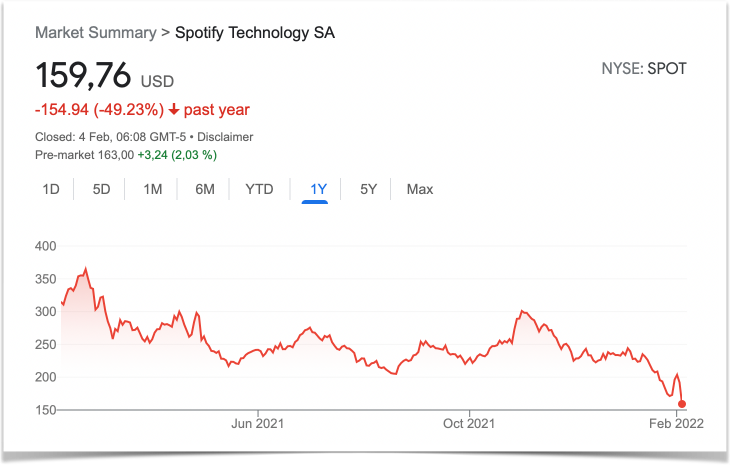
While some perhaps would like to attribute some of those losses to the JRE collaboration, this drop started way before the deal with Rogan was finalised. Daniel Ek's perspective actually seems to be that the numbers would have been even worse without an exclusive deal with JRE.
More importantly Spotify has been struggling with this reality for quite some time, with podcasting being one of the efforts intended to boost market confidence again.
This leaves the company in a worrisome conundrum. Podcasting is the expected golden goose that will contribute to more growth. But the podcasting business itself is bringing a world of new content moderation challenges that appear to have been unanticipated, despite content moderation being one of the most talked-about phenomenons of online media for some years. Now the lack of influence over creators, written into contracts, might even contribute to further break apart the music leg of the business, with artists leaving the platform.
Meanwhile, concerned employees find themselves upset with leadership in a world where the tech industry hold their skills in very high demand and remote work is becoming more common. In another reality employee stock options may have provided further incentive to stay on, but any stock options appear to mean less and less.
This is the business side of things that Daniel Ek perhaps should have explained.
The risks of high employee turnover
So here is why I believe Spotify is in an especially bad place and why investors have reason to be very nervous.
Spotify are investing big money in partnerships that are in direct opposition to values that are expressed by the company. Not just big money. The largest disclosed sum ever in a podcast deal. That kind of money signals what the company thinks is most important. Hence: the most important thing in Spotify's business is something that is making internally expressed values seem like a deception.
As one current employee writes on Glassdoor:
Expressed values of the company (inclusivity, compassion) are different than demonstrated values (paying an idiot $100M to help destroy society)
And honestly, very little in Daniel Ek's speech signalled inclusivity and compassion to me. The values he appears to advocate for are along the lines of eagerness, competition, immensity and defiance.
Here's the thing. It's quite possible to build a company around those values. But that is not the company that was built. That is not what many of the skilled workers at Spotify signed up for. This is the concern employees are trying to voice while they are being CEO-splained how growth works.
Recruiters obviously know this and Spotify is now a sizable orchard to them, very ripe for the picking.
The ethics catch
I know that ethics, and promoting wellbeing in their work, is important to many Spotify employees. This is clearly demonstrated through initiatives like the ethics assessment worksheet, put together by The Spotify Ethics Guild.
Here's what can happen when you have a loss of skilled workers with an ethical mindset: the people with less ethical mindsets often stay on. They don't feel the same incentives to leave. And this can actually have positive effects on the bottom line. In the short term. As time for care and reflection is cast aside. But in the long run most companies suffer from being a gathering of individuals with their own best interests in mind.
The year of 2022 will likely be a year of reckoning for Spotify, as the company's true values make themselves known through ongoing actions. And maybe Daniel Ek is more correct than I first presumed when he says "the rules of the road are being written as we innovate". It's just that he may find that there are ever fewer and fewer people joining him on that road.
Addendum
This article addresses the CEO speech and is about the communicative aspects of a CEO addressing employees. It is not about the specific harms of the show. If you do not believe the show is harmful to the extent that is implied, the communicative aspects of this speech are still a relevant discussion point.
To illustrate why I believe the show is harmful and why I stand by my use of the word "traumatized" I will share this observation and a link with example clips from his show:
Spotify themselves have at the time I'm writing this removed more than 110 episodes of the Joe Rogan experience, 70 episodes within the last few days. They have done this without any comment. The recent removals are widely believed to relate to his and his guests' use of the N-word and other racial slurs.
For further context I would hope that the clips found on this page provide understanding for the type of harm I am referring to. The clips include:
- Rogan's recent apology addressing the compilation of him saying the N-word where he emphasises clips being taken out of context, followed by examples of him arguing for saying the N-word
- Joe Rogan laughing about coercing women into performing oral sex
- Joe Rogan talking racist “science” with Holocaust-denier Chuck Johnson
- Rogan shouting at a primatologist for saying he was wrong, calling her stupid, fucking idiot and mocks her for having a vagina
- Video of Rogan referring to black people as apes, followed by a video of him telling a biracial person about the advantage of having the brain of a white person and the body of a black person
- An example of Joe Rogan impersonating a child with intellectual disabilities
Do understand that individuals or groups are regularly called out with slurs and hurtful commentary. While these people may not listen to the show, many of the millions that do see this as endorsement and encouragement for harassment both off- and online, making the effects deeply real and personal.
For more updates as different aspects of this story unfolds you may want to follow my Twitter thread.
There is now a part 2:
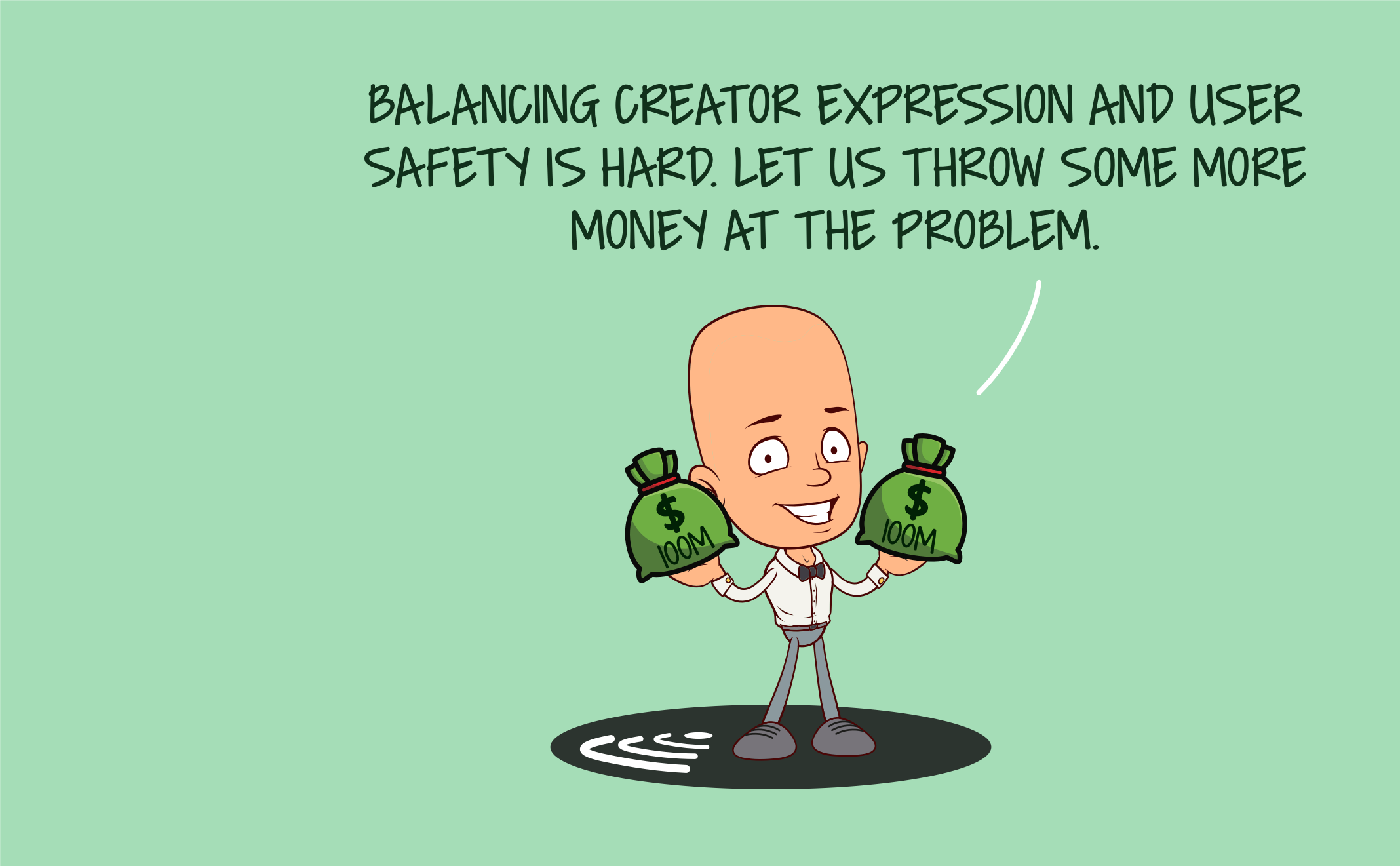


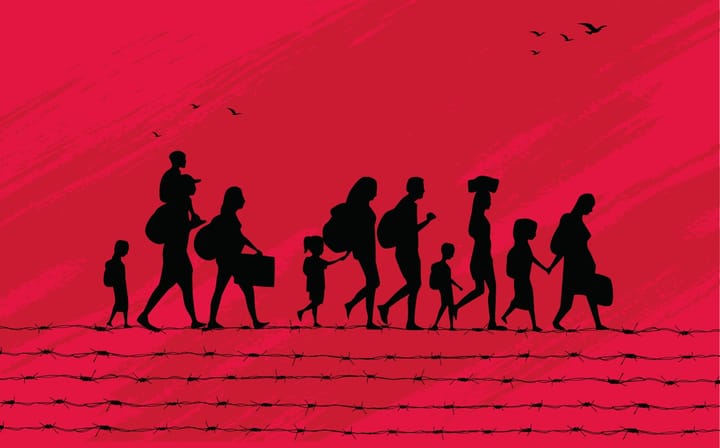
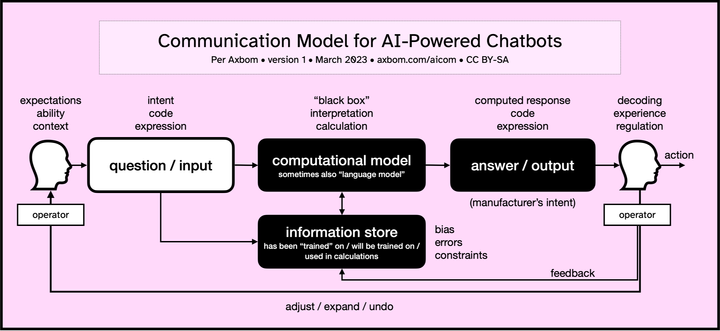

Comment